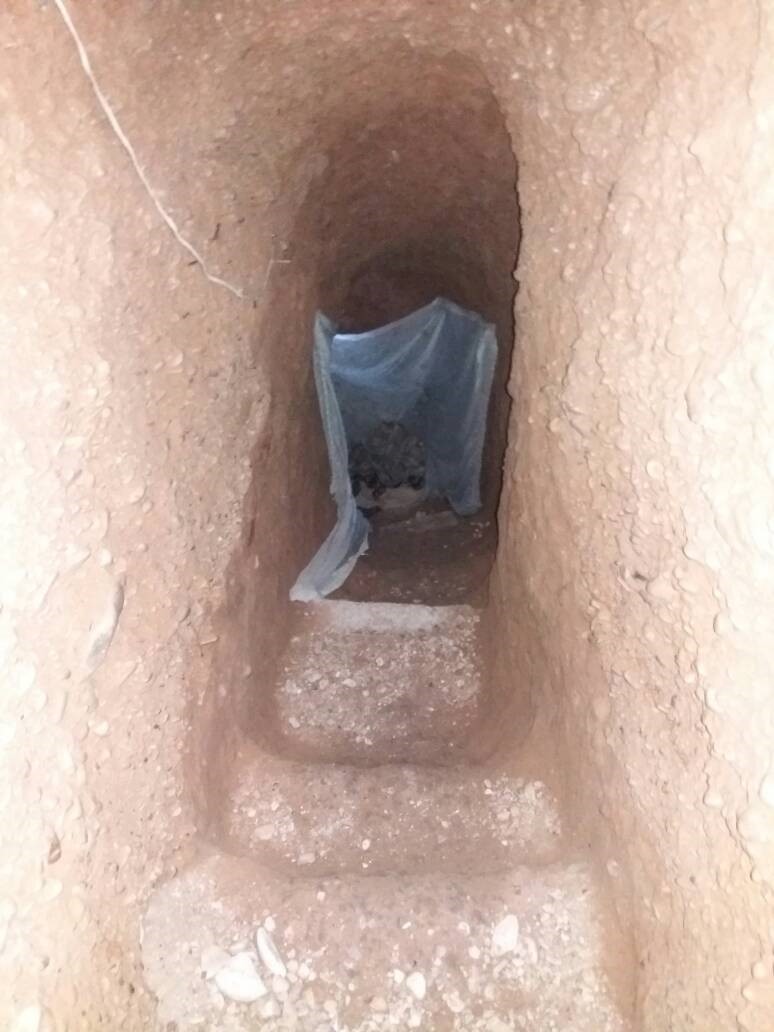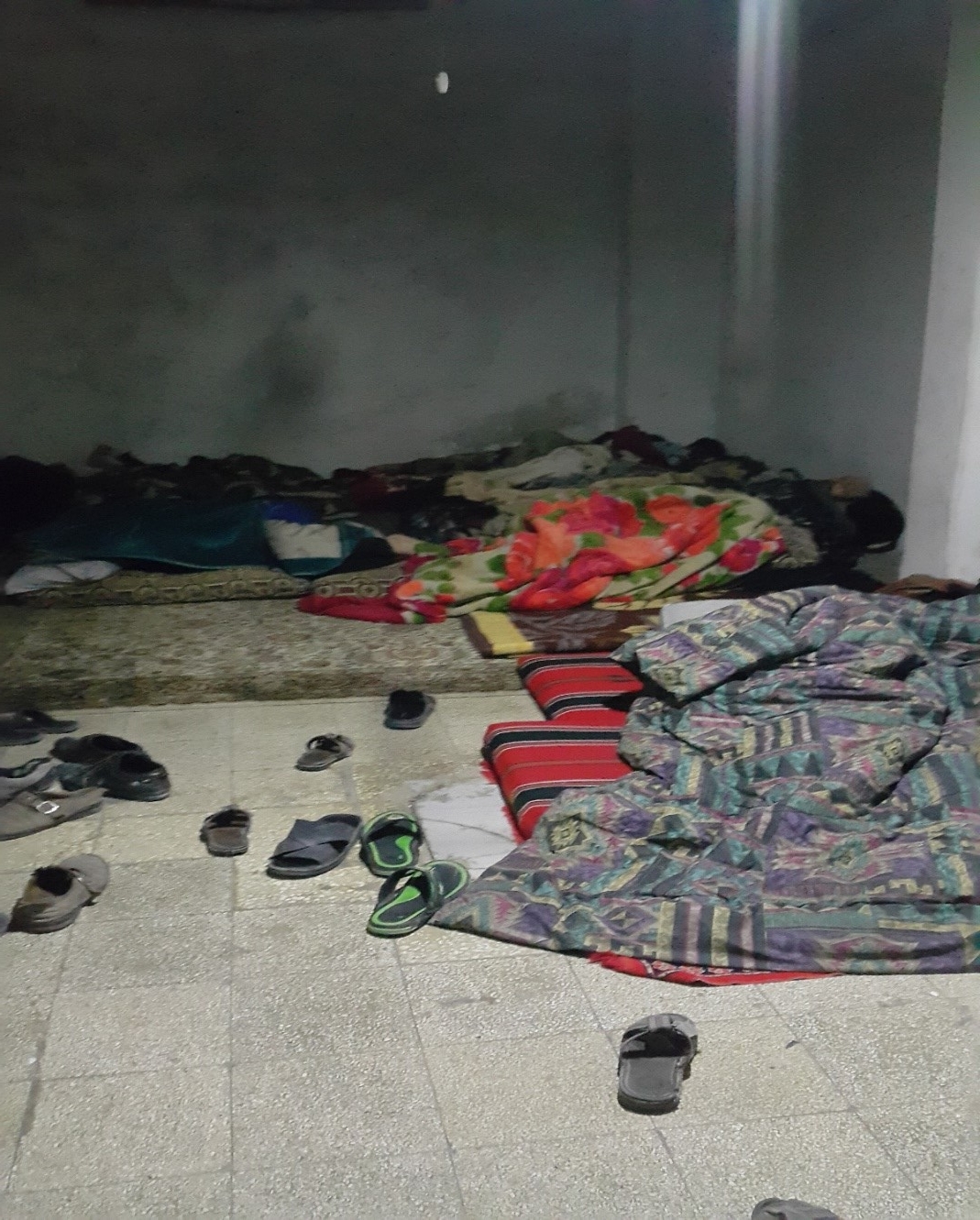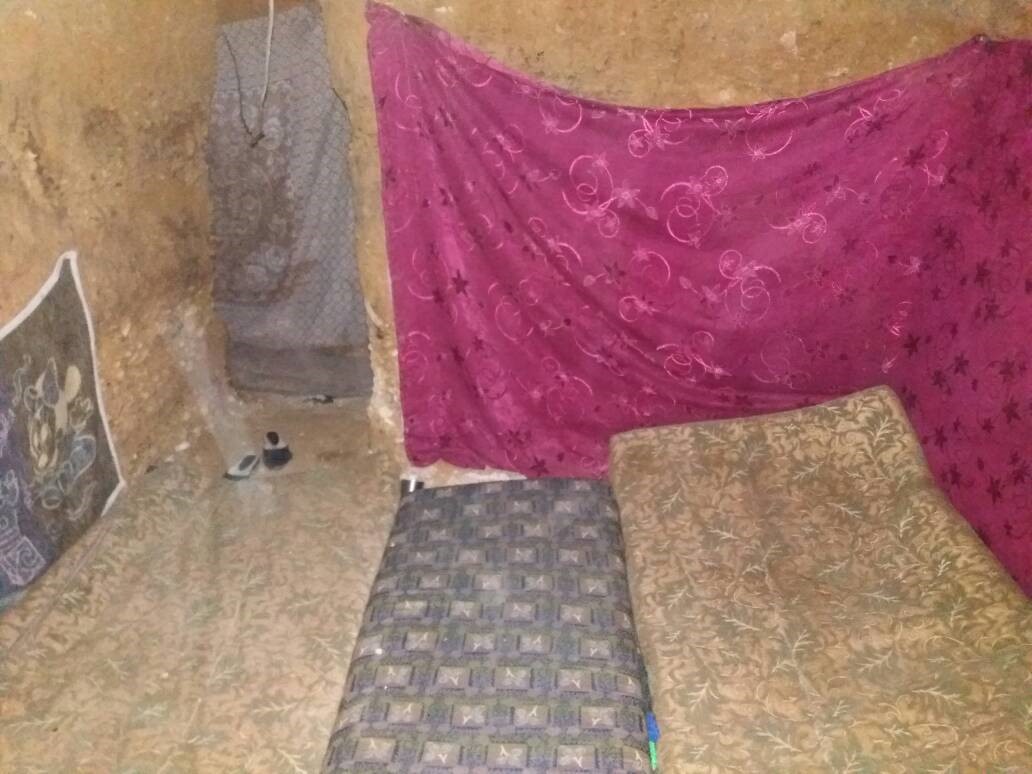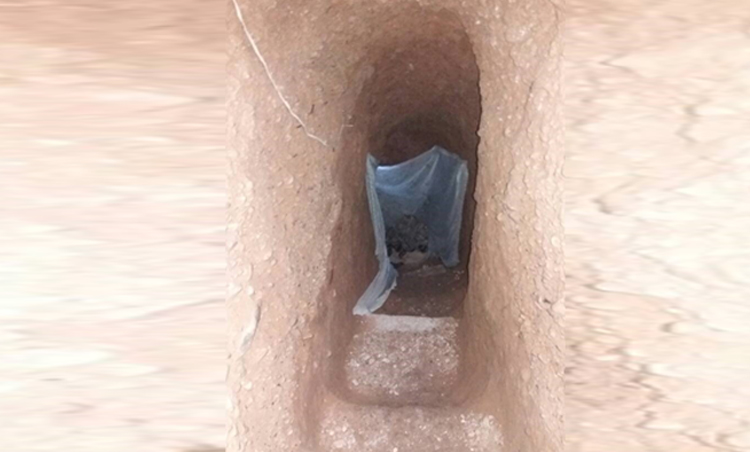Preface: Hundreds of thousands of civilians trapped in Eastern Ghouta still live catastrophic humanitarian situations due to the continuation of the most violent military campaign[1] that the Syrian regular forces and its Russian allies have launched particularly on Eastern Ghouta since February 18, 2018. The violent shelling of Eastern Ghouta cities and towns with various types of weapons, that claimed hundreds of lives of civilian victims, pushed many people to hide in cellars, which lack the minimum conditions of life and for adequate housing, and pushed many as well to dig tunnels under their own homes hoping to survive and stay alive.
According to Syrians for Truth and Justice/STJ’s field researcher, many people of Eastern Ghouta are unable to leave “their new homes” except rarely, especially after many of them have been injured or killed outside during their search for any food to make them survive. In addition, the large number of the civilians who shelter in these cellars and their inability to leave, threatens the spread of diseases among themselves, especially respiratory diseases, skin diseases and other infectious diseases.
The UN Security Council adopted Resolution No. (2401) amid a welcome from the United Nations, which called for a ceasefire throughout Syria for at least 30 consecutive days to enable the delivery of humanitarian aid and the medical evacuation services of the critically sick and wounded. The United Nations Office for the Coordination of Humanitarian Affairs (OCHA) has described the situation in Syria as "bleak" in the wake of the UN Security Council resolution calling for a 30-day ceasefire throughout the country.
STJ had earlier prepared a report entitled "As If It’s Doomsday" that dealt with several massacres in Eastern Ghouta following the recent military campaign. STJ had also prepared a report entitled "Scantiness of Humanitarian Assistance Compounded the Tragedy of about 400 Thousand People Trapped in Eastern Ghouta" that spoke about the suffering of thousands of civilians trapped in Eastern Ghouta because of the lack of humanitarian and UN assistance provided to them.
Vision of Sunlight is a Luxury!
Hasan al-Madani, who hails from Duma, told STJ that most of Eastern Ghouta people could no longer leave the basements because of the violent shelling of their cities and towns, pointing out that the sunlight is a luxury for all the people. He added:
"At first, I had no intention to shelter in the cellars; I preferred to stay in my house as usual, but missiles and rockets began to pound on us from all direction; no one was able to stay inside his house even if he was immune. We now live our whole life inside these cellars, we eat, we sleep, and our children play inside."

An image shows the entrance to one of the tunnels that the people dug up in Duma city to seek refuge from shelling. Photo credit: STJ

An image shows the dire conditions of many locals who shelter in the cellars.
Photo credit: STJ

An image shows one of the rooms dug beneath the ground that the people took as shelter in Eastern Ghouta.
Photo credit: STJ
Many people did not have a better choice than digging large holes beneath their homes hoping of salvation and surviving death, despite these holes lack the minimum necessities of life, Hasan al-Madani said and added:
"On the first days of shelling, the regime targeted everything that would keep us alive, hit the power grids, destroyed some of them completely, and cut electricity from all the neighbourhoods of Duma. Moreover, the violent shelling cut water as well from the locals in addition to most of the communication networks; we can no longer contact with each other. Under this siege, many of the people have not been able to store any food, even in small quantities, thus pushing them to live on a few morsels, whom most of people do not know how to get them. Consequently, many become forced to go out and seek their day's sustenance, though this is more like a suicide as they may not come bake safe to their children, who anxiously await him."
Death Waits Those Outside the Cellars:
In another testimony, Shadi al-Issa-alias, an activist from Duma, told STJ that many civilians, who left the cellars to seek the sustenance of their day, were either injured or died during their journey. He added:
"With the intensification of shelling Duma, I hastened to take refuge inside the basements, and I risked my life several times to get a little food, but luckily, some shells fell close to me several times, and only the Providence saved me from injury. I can say that death no longer frightens most of the people, but what scares them more is being exposed to a serious injury and then suffering from a lack of medication and difficult therapeutic conditions that cannot be imagined."
Al-Issa noted that one of the children, identified as Aya al-Bjour, who had not yet reached the age of five, had been killed on February 24, 2018 when she was out of the basement to the street to get some drinking water. He explained that a Katyusha (modified rocket) had stunned her and fell in front of her directly killing her at the spot. He commented:
"Imagine how water could be the reason to claim the life of a little girl who has committed no sins."
Saeed al-Ali, who hails from Hamoryah city, told STJ, that many basements do not contain the minimum conditions for a healthy life, thus leading to the spread of some diseases among the population, he added:
"With the intensification of the shelling of Hamoryah, I hastened downstairs with my children to take refuge inside the cellars, but this narrow spot was experiencing great overcrowding. Consequently, my son, who has not yet completed his first year, suffered from suffocation, so I was forced to leave the cellars and take him out, although that endangered our lives, but we not have any leverage. Many families are fearful of the spread of diseases among themselves within those basements, because they are even unable to go out and see the sunlight."
As confirmed by STJ’s field researcher, many Eastern Ghouta people are ready to sacrifice anything for keeping them alive. Many chose to stay inside those cellars though it is difficult to live in. In addition, many massacres had occurred against civilians after targeting these shelters directly by warplanes, such as the terrible massacre that took place in Beit Sawa on February 20, 2018, when dozens of civilians, mostly women and children, were killed, after the bombardment of a shelter in that town.
[1] On February 17, 2018, the Syrian regular forces and their militias mobilized a very large number of machinery and soldiers at several points adjacent to Eastern Ghouta. According to military sources, the mobilization came as part of preparations for military operations involving the "Tiger forces" affiliated to Soheil al-Hasan in order to control Eastern Ghouta. This campaign began with intense bombardment as of February 18, 2018, being through warplanes, helicopters, or heavy artillery, leaving up to 500 dead since the beginning of the campaign until this day, according to STJ’s Field researcher.

